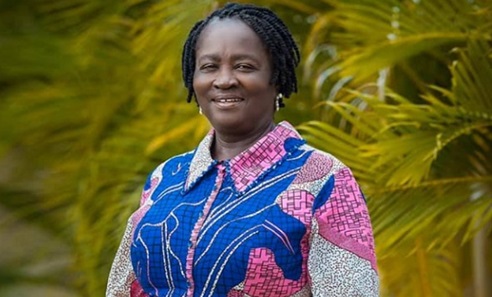
Election 2024: Choice of Prof. Opoku-Agyemang
On February 27, it was publicly disclosed that former President John Mahama, the NDC presidential candidate for the 2024 elections, had officially submitted his running mate choice to the party’s Council of Elders.
Advertisement
As per further reports, the council will meet on Thursday, March 7, 2024, to consider the nomination.
Several news outlets have reported that Professor Naana Jane Opoku-Agyemang is his choice.
Role of running mate
In January, I shared in an op-ed piece what we know so far about the impact of running mates in our presidential elections, drawing on public opinion surveys and past election results.
From public opinion surveys – a) In 2016, Prof. Isaac Owusu (Report of Elections Study of 24 Swing Constituencies) asked “does the running mate influence your choice of the President?” The answer was mixed.
While a slight majority (51 per cent) said “no” overall, there were regional variations across the five regions in which the study was conducted.
A majority said “yes” in the Greater Accra and Northern regions; “no” in the Brong Ahafo and Central regions; and an equal split in the Western Region between “yes” and “no”.
In 2020, the iRIS Research Group (Ghana 2020 Pre-Election Survey: Report OF The Study Of 36 Competitive Constituencies) asked “would the selection of the running mate influence your choice of the presidential candidate you would vote for?”
Overall, only 25 per cent answered “yes” but specifically, 59 per cent said “yes” in the case of Prof. Naana Jane Opoku-Agyemang influencing their vote for the NDC, while 49 per cent said “yes” in the case of Dr Bawumia influencing their vote for the NPP.
From past election results, I opined that for non-stronghold regions of the NDC where the party has selected running mates, the verdict is mixed in the Central Region- wins in 1992, 1996 and 2012, but losses in 2016 and 2020.
Three points must be made clear – a) the dynamics of election years vary from one election to another; b) there are several other factors that influence a voter’s choice in an election; and c) the research on the role of running mates in Ghanaian elections is very limited.
Prof.’s nomination
Prof. undoubtedly is very qualified and has the credentials to hold the second highest elected executive office of the land.
Her late nomination in 2020 and as someone I did not get the impression had a long history of involvement in NDC politics, presented challenges.
However, she has had four years to strengthen her ties and engage more actively in the party’s politics.
More importantly, I believe the last four years has also allowed her to strengthen her relationship with John Mahama.
Yes, she may have served in his administration as a minister, but the dynamics are different being a running mate or a Vice-President should he win the 2024 election.
Political parties want to win elections, therefore, the expected electoral fortunes a nominee brings to the ticket is important.
My take is that the NDC flagbearer is of the sincere belief that, among the candidates he considered, she brings the expected political dividends.
For me, the nomination goes beyond the electoral fortunes Prof. potentially brings to the NDC ticket in this year’s election.
It is the historic nature of her candidacy.
I recall some of the reactions that greeted her nomination in 2020 including a debate over whether it was historic, given previous nominations by other parties (PPP, 2012 & 2016; CPP, 2012; PNC, 2012).
But we can all agree that our multiparty democracy is dominated by a duopoly – the NDC and the NPP.
And for one of the parties in the duopoly to open the political space in a very intentional way to a female running mate is what makes her nomination historic, in my opinion.
As a strong advocate of diversity, equity and inclusion, electoral competition is not the only way to increase gender diversity in our duopoly-dominated political space.
Those who profess support for increasing female participation in politics and governance must demonstrate that commitment in very intentional ways and this is one way to do it.
Prof.’s nomination will be subjected to scrutiny – fair enough and rightly so.
But we must let the discourse be mature in a way that balances scrutiny with gender-sensitive rhetoric.
It is never an easy balancing act because political campaigns are hard-fought battles with very sharpened rhetoric.
It becomes tricky with candidates who are generally from minority groups.
I think of former President Obama and former Senator and First Lady Hillary Clinton as presidential candidates in the United States and the heightened role of race and gender during the campaign season.
I am sure Prof. is already aware of this.
Congratulations to Professor Naana Jane Opoku-Agyemang on her expected nomination.
The writer is the Executive Director of Democracy Project, a political think tank.




